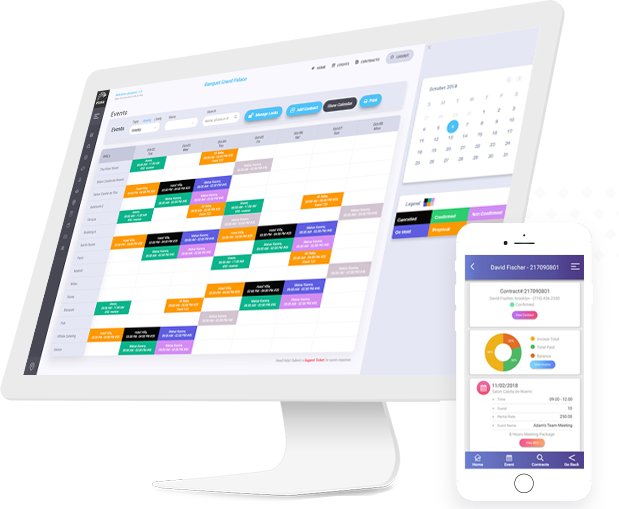Businesses should opt for implementing ERP for small businesses to help in gaining more control over every operation. For today’s fast-paced business landscape, efficiency and scalability are the major necessities. For manufacturers, retailers, and service providers alike, an Enterprise Resource Planning (ERP) system is the core of streamlined operations.
But how can you pick the best ERP software solution when there are so many solutions on the market? In this guide aim to walk you through the major essentials from understanding Manufacturing ERP needs to ensuring CRM and ERP integration with ease, while adhering to ERP best practices that drive real growth
Why ERP Matters for Modern Businesses
An ERP system integrates core business functions such as finance, inventory, procurement, and human resources into a unified platform. Making the long-term decision to choose an ERP system has a direct effect on the operation of your company.
By adopting a reliable ERP system, businesses can automate workflows through business process automation, significantly reducing manual errors while enhancing efficiency. The inventory management improves real -time visibility through software ensures better stock control, reduces waste and optimizes supply chains. In addition, CRM and ERP integration finds the difference between sales and operations easily, promoting strong customer relations through centralized data. When applied correctly, an ERP system not only increases productivity and cuts costs, but also supports scalable growth, which makes it a game-chainer, especially for ERP solutions to suit small businesses with the aim of competing with large enterprises in today's dynamic market.
Key Considerations When Choosing an ERP
With the help of the right ERP solutions, it is easy for different departments of a company to have a unified cooperation of their activities within a single platform. Take a look at the following key factors that can help you get started at the right foot.
-
Recognize your business needs: Not all ERPs are made equal. A manufacturing ERP production will prioritize scheduling and shop floor control, while a retail-centric system can emphasize point-off-cell integration. Start by mapping your workflows to determine the necessary features.
-
Cloud-based ERP vs In-office Servers: Cloud-based ERP solutions provide flexibility, scalability and remote accessibility-outdations for growing businesses. The on-radius system, offering more control, requires significant IT infrastructure. Weigh professionals and opposition based on your operational requirements.
-
CRM and ERP Integration: A disconnected ERP and CRM data form the silos, causing disabilities. Opt for a system that supports seamless CRM and ERP integration, works from a single source of sales, customer service and operating teams.
-
Scalability for future development: Your ERP should grow with you. Whether product lines are expanded, entering new markets, or increasing the number of transactions, your system should be favourable without expensive overhaul.
ERP Best Practices for a Smooth Implementation
Implementing even the most advanced ERP system can fall short without proper execution. To ensure success, begin by involving key stakeholders from every department including finance, operations, and IT early in the process to align the system with cross-functional needs. Data migration is another critical factor; dedicating time to clean and validate data before transfer prevents costly errors down the line. Equally important is comprehensive employee training, as user adoption ultimately determines the system's effectiveness prioritize hands-on sessions to build confidence and competence. Finally, adopt a phased approach by launching a pilot program with a small team to identify and resolve issues before a full-scale rollout. Following these best practices minimizes risks and sets the foundation for a smooth, successful ERP implementation.
ERP Benefits You Can See and Measure
When properly implemented, an ERP system delivers concrete, measurable benefits that transform business operations. By automating repetitive tasks, it significantly improves efficiency, allowing employees to focus on higher-value strategic work. Real-time analytics empower leaders with actionable insights, enhancing decision-making across financial and operational performance. Integrated systems unify customer data, enabling sales and support teams to deliver seamless, personalized experiences. Additionally, ERP-driven process optimization reduces costs by eliminating redundancies—from excess inventory to inefficient workflows. For small businesses, these advantages aren’t just incremental; they’re often the catalyst for scalable growth and competitive differentiation.
Selecting the right ERP system is a strategic decision that impacts every facet of your business, from operations to customer satisfaction. For manufacturers, a Manufacturing ERP with robust production tracking is essential, while growing businesses benefit from the flexibility of cloud-based ERP solutions. The key lies in choosing a system that aligns with both current needs and future goals scalability shouldn’t be an afterthought.
In today’s fast-moving market, an ERP isn’t just a tool it’s the backbone of digital transformation, helping businesses adapt to changing demands while driving efficiency and growth. If you’re evaluating Enterprise Resource Planning (ERP) systems, start by identifying pain points, prioritizing integration, and ensuring the solution grows with your business. The future belongs to agile, data-driven organizations make sure your ERP is built to take you there.









.jpg )







Leave a comment